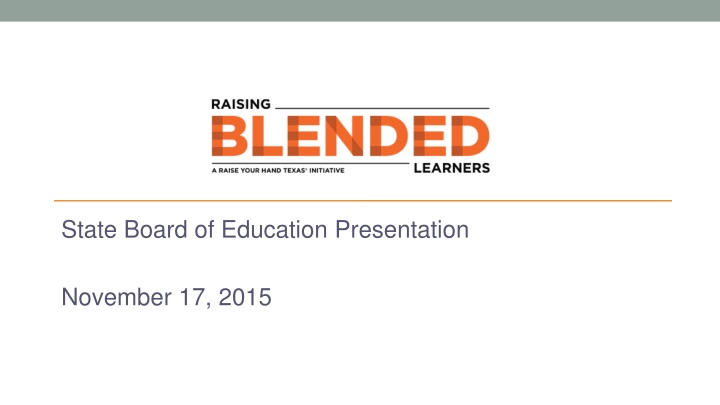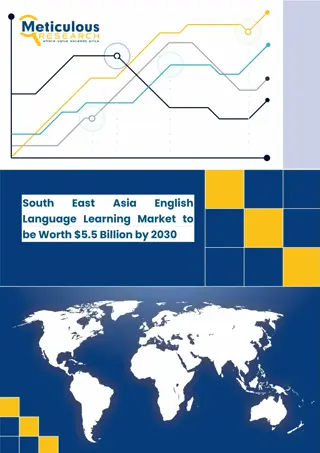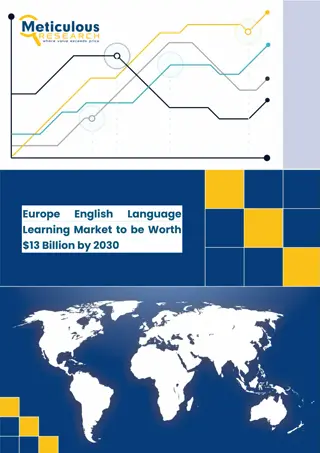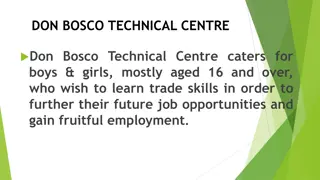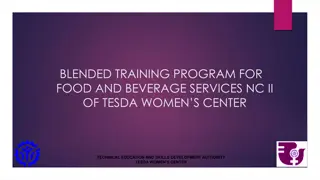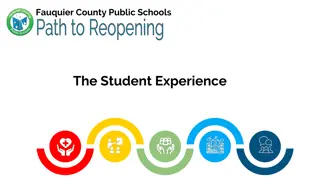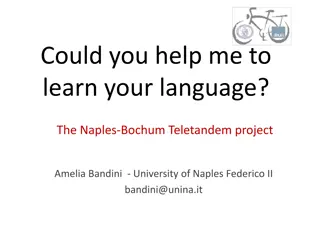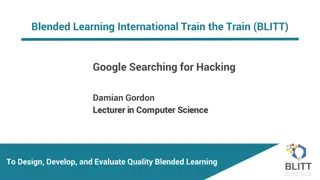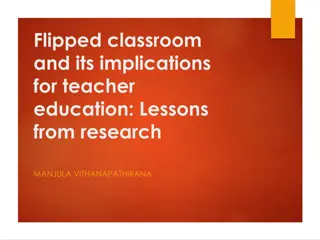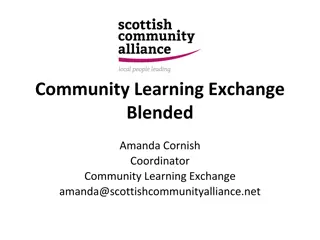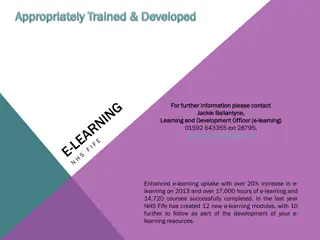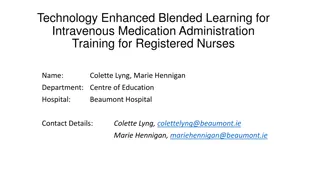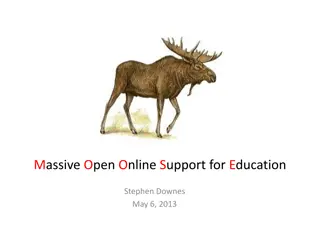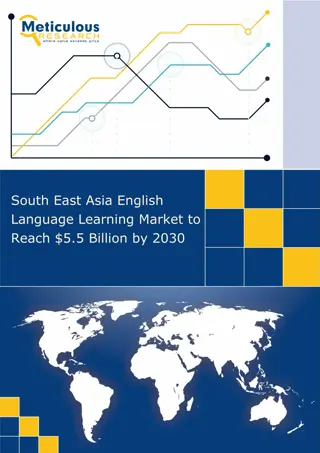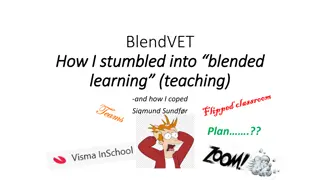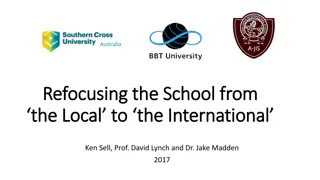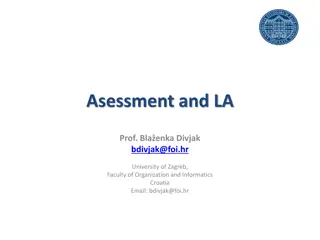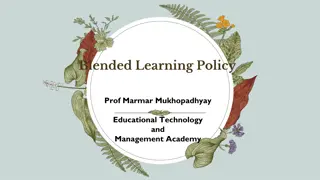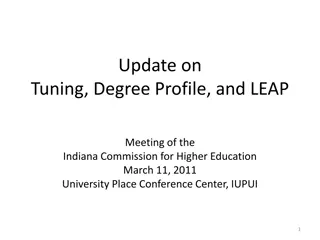Blended Learning Initiatives in Education: RYHT Presentation Overview
Blended learning, as defined in the State Board of Education presentation on November 17, 2015, is gaining traction in K-12 education for achieving student-centered learning at scale. The presentation highlights the potential benefits of blended learning in enhancing student achievement through personalized, competency-based approaches. Nationwide efforts such as the Next Generation Learning Challenges (NGLC) and state-specific initiatives like Raising Blended Learners in Texas are supporting the widespread adoption of blended learning. The Raising Blended Learners Initiative, launched in July 2015, aims to showcase strategies for using blended learning to bridge achievement gaps across diverse student demographics and geographic regions, providing funds and technical assistance to winners.
Download Presentation

Please find below an Image/Link to download the presentation.
The content on the website is provided AS IS for your information and personal use only. It may not be sold, licensed, or shared on other websites without obtaining consent from the author.If you encounter any issues during the download, it is possible that the publisher has removed the file from their server.
You are allowed to download the files provided on this website for personal or commercial use, subject to the condition that they are used lawfully. All files are the property of their respective owners.
The content on the website is provided AS IS for your information and personal use only. It may not be sold, licensed, or shared on other websites without obtaining consent from the author.
E N D
Presentation Transcript
State Board of Education Presentation November 17, 2015
Blended Learning Defined A formal education program in which a student learns at least in part online with some element of control over time, place, path or pace and at least in part at a supervised brick and mortar location. The modalities along each student s learning path within a course or subject are connected to provide an integrated learning experience. (Horn & Staker, Blended 2014) 1. Student learns in part online and in part at a brick and mortar location 1. When learning online, Student has an element of control over: time, place, path & pace Video: 6 Reasons We Love Blended Learning 2
Why Blended in K-12 Across the country, schools are excited about the potential to achieve Student Centered Learning at scale via the support of Blended Learning. What do we mean by a Student Centered School System: Personalized Competency Based Student Centered Schools are achieving Student Centered Learning in limited instances via differentiation, 1:1 tutoring, etc.. While academic results in these scenarios are strong, suggesting that we should do more, the practice is not scalable. Schools do not have the financial or human capital resources to achieve this type of Student Centered Learning for all of their students in all schools. Until now! Blended Learning is the way to achieve Student Centered Learning at scale in a financially sustainable way. 3 *Definitions for Personalized and Competency Based may be found here in the Appendix slides.
Blended Learning Nationally & in Texas School districts and charter school networks are emerging as hubs of Blended Learning innovation in cities and states across the country. Two of the most prominent national efforts supporting Blended/Personalized/Student Centered learning are: Next Generation Learning Challenges (NGLC) Next Generation System Initiative (NGSI) Raise Your Hand Texas: Raising Blended Learners is the most promising effort to scale Blended learning statewide! 4 *More information on NGLC and NGSI may be found here in the Appendix slides.
RYHT Raising Blended Learners Initiative July 2015 Innovation Funnel 1,200 districts Objective: Showcase strategies for using BL to improve student achievement across diverse student demographics and geographic regions in the state, particularly among schools and districts with persistent achievement gaps. October 2015 - June 2017 Winners Receive Funds & all receive TA Support Sept-Oct 2015 Blended Workshops (75) 75 Awards: 5 winners receive up to $500k + technical assistance TA Ecosystem: Series of targeted supports for winners (5) and non-winners (70) professional development, technology assistance, implementation consultation March 2016 5 Finalists Selected November 2015 Business Plans Due Evaluation: FSG conducting independent strategic evaluation of process and outcomes February 2016 Convening for 10 Semi-Finalists 5
Initial Ecosystem Providers Professional Development Regional Hubs Emerging TNTP, Friday Institute Teacher Training / Credentialing Austin Policy / TEA Partnership Deans of the Texas Graduate Schools of Education (1st Mtg Jan 16) RYHT & Educate Texas District / School Regional Hubs Emerging - 5 Winners - 70 Workshop Participants N. Texas Online Content Selection Finance Afton Partners EdSurge Regional Hubs Emerging Assessments TBD: focused on Competency Based Progression & Growth Metrics Houston 6 4 Year Program & Academic Impact Evaluation: FSG
Definitions: Personalized Competency Based Tailor the instructional environment - what, when, how and where students learn - to address the individual needs, skills and interests of each student. Students advance upon mastery. Competencies include explicit, measurable, transferable learning objectives that empower students. Students have the opportunity to take ownership over their learning. Assessment is meaningful and a positive learning experience for students. Student needs drive the design of flexible learning environments. Students receive rapid, differentiated support based on their individual learning needs. All operational elements - staffing plans, space utilization, and schedules- respond and adapt to students goals. 8
Next Generation Systems Initiative (NGSI) In 2011, the Bill & Melinda Gates Foundation invited 300 school districts to apply for a $100k planning grant to explore how they would implement Student Centered Learning (calling it personalized learning ) in their district. 51 accepted the opportunity! In 2012, 20 of the 51 were awarded the $100k planning grant, designed a pilot and described how they would scale the pilot across the district if it worked. In 2014, 5 districts were awarded $ to implement their pilots (first school pilots were launched this fall!!): Dallas ISD Henry County, GA Lake County Schools, FL Pinellas County Schools, FL Riverside Unified School District, CA 9
Next Generation Learning Challenges (NGLC) Over the last 3 years, NGLC (funded by the Bill & Melinda Gates Foundation) has funded 41 schools to pilot Student Centered Learning through their Breakthrough Schools for College Readiness program. Last year, the Broad Foundation and Michael & Susan Dell Foundation partnered with the Gates Foundation to fund 6 Regional Hubs to incubate & support Student Centered Learning in their regions: Oakland, DC, New England, New Orleans, Colorado, LEAP Chicago. As of June 2015, 49 more schools in these regions were awarded a grant to develop Student Centered pilots! The work we are currently doing in Texas is not formally a part of NGLC or NGSI, but we work closely with NGLC & model much of the work we are doing off of their lessons learned. 10
